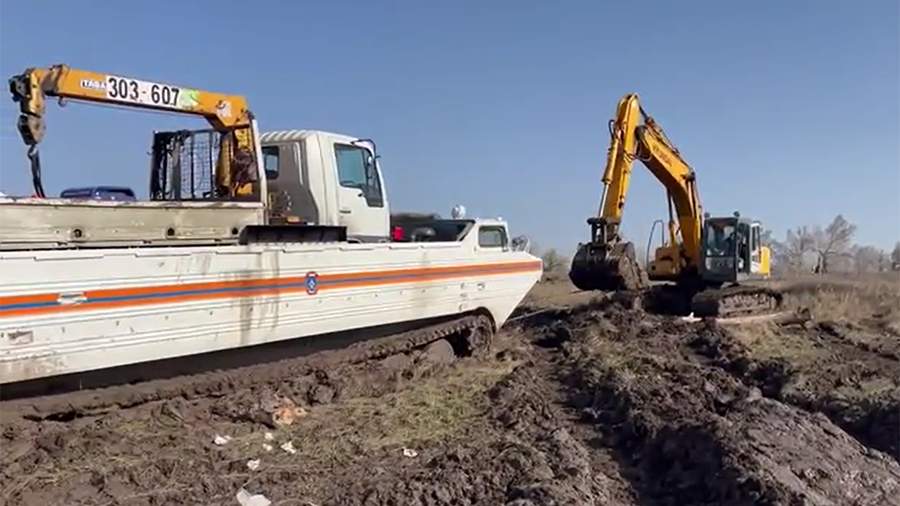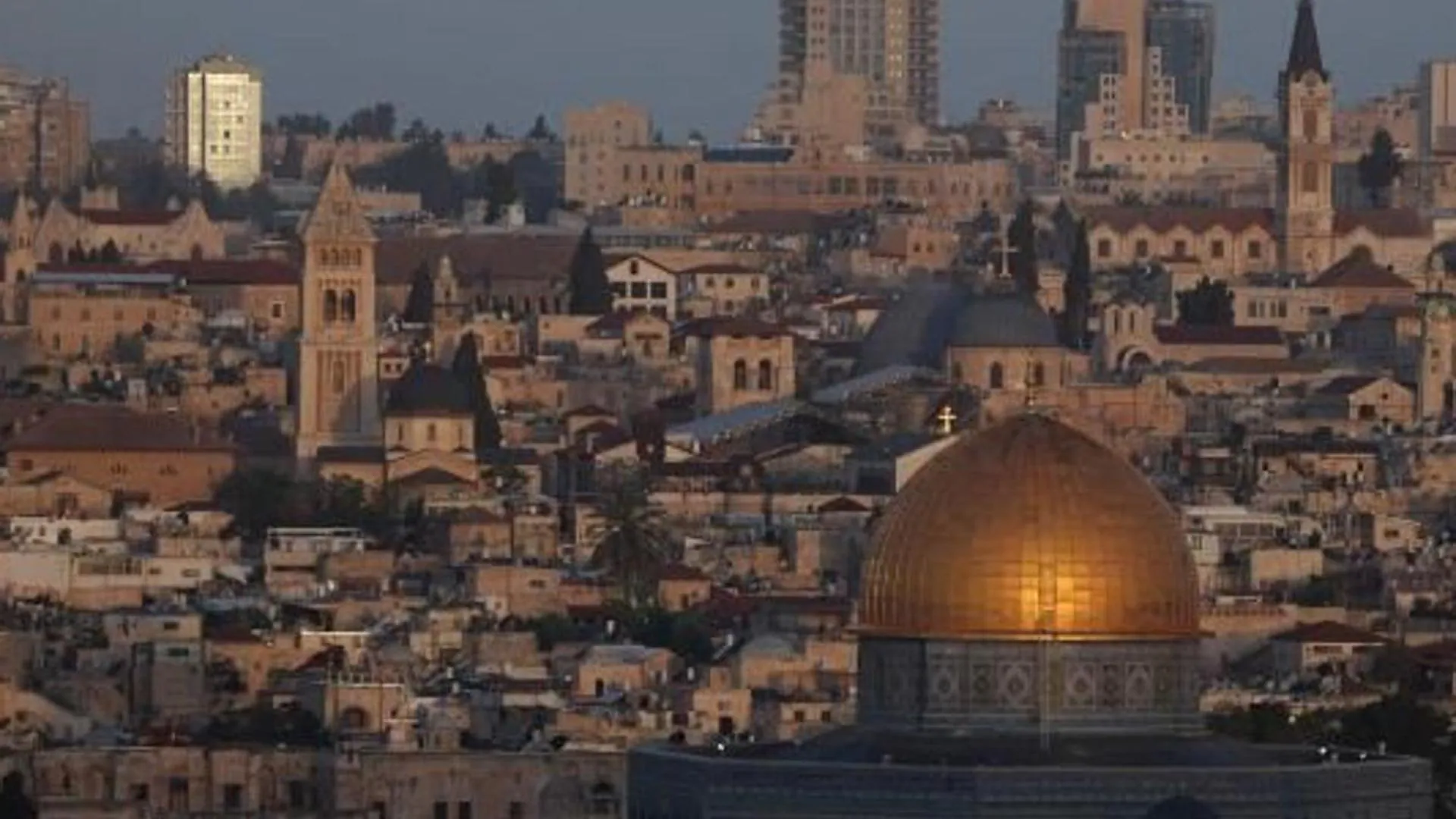Yulia Jelahina (26) lives in the center of Kherson. She has brought her mother into the house and together they have “a small zoo” consisting of two cats and a Pomeranian, Mia. Jelahina had her own salon with botox and filler treatments further in town. “I don’t think it’s there anymore. They bombed everything on the first night of the war,” she says. She talks calmly on the phone. “The building is still standing, I believe, but the buildings around it have been hit and the owner of the building has taken care of people who have become homeless. I have no idea what it looks like there now.”
On Wednesday, the Russian army claimed to have complete control of Kherson. It is the first major Ukrainian city to fall since the war started more than a week ago. After the siege, that city has now moved on to the next phase: the occupation. The dead have yet to be counted, but it is certain that there are dozens. The port city on the Dnieper has about 300,000 inhabitants.
Jelahina does not give in yet: „Is this a Russian city? No it is still Ukrainian, there are only Russian soldiers around.” Kherson is still surrounded. Hardly anyone can enter or leave the city. There have been no deliveries of food or medicine since the beginning of the war.
The mayor, Ihor Kolychayev, is still at his post and communicates with the population via Facebook. He promises to do his best to “remove the effects of the invasion”: to have the dead collected and to restore gas, water and power supplies where they have been damaged. There is a curfew. Pedestrians are allowed on the street with a maximum of two people.
Oleksi German is a gynecologist and obstetrician in a large hospital in Kherson, Taurt Medical. Two days ago, ambulances did not pass by the troops. “Wednesday night I helped a woman give birth over the phone. It was too dangerous to go outside. I talked her through it, told her not to worry so she wouldn’t panic. They eventually found a doctor and a nurse nearby to help.”
Shut off from the outside world
Ukrainian television was shut down in the city on Thursday. Since Friday, residents can switch back on, but only on 24 Russian channels. “They are trying to make our city Crimea, where they spread a lot of fake information,” says German. Jelahina: “The Russian news says that our city wants to be independent. That is not true. They cut us off from the outside world.” They can still watch Ukrainian or foreign news online, but the internet no longer works properly. German only has a 3G or 4G connection via his phone.
Russian and Ukrainian negotiators agreed on Thursday to create “green corridors” to supply besieged cities. Trucks are now waiting outside Kherson, but they are not allowed through, the mayor reports on Facebook.
“The Russians want to be the hero themselves and supply us, but it’s all fake. All the people here realize that,” says German.
Video image distributed by Reuters
The first problem facing the city is food supply. “I am very concerned about it. It is impossible to buy anything in the city. The Russian army has demolished or emptied shops. The stores that remained open after the raid are now almost all sold out. Some things have been looted by Ukrainians who were worried about whether there would be enough left,” said Jelahina. Meat is no longer available. On Thursday she went to the market with her mother, because there were still fresh products there. “I stood in line for more than an hour and managed to get one and a half kilos of potatoes and three kilos of pears. My mother stood in line for three hours and bought mandarins and tomatoes.” She laughs a little about it.
Drug shortage
The second problem: drugs. “In two or three days we expected a humanitarian crisis,” Ukraine’s Deputy Health Minister Oleksi Jarjomenko told the government on Thursday. Financial Times† According to him, about 6,000 diabetics in the region need insulin. “And furthermore all the medicines needed for operations, for anaesthesiology. oncological drugs. They are almost finished”, says Jarjomenko. The WHO also warns of a shortage of oxygen tanks.
Before injecting botox, Jelahina completed a university degree in pharmacy, following in the footsteps of her mother. “My mother knows many doctors and surgeons. They were out of disinfectant, blood clotting agents, painkillers and intravenous antibiotics. So a few days ago I was driving around town with my mother past pharmacies and other places where there was still some left. But now it’s over.”
While Ukrainians in many cities still sleep in basements, Jelahina and her mother are sleeping in bed again. Now that the Russian soldiers are in the city, the bombing has stopped. “Now we are afraid of guns, because some soldiers are drunk. Women are afraid to go out because they are violent towards us.” Is she referring to sexual assault? “Yes,” says Jelahina. She remains silent for a minute, swallows. “I’m afraid to go out.”
Not only women stay indoors, says German. “There is lawlessness, the soldiers do what they want. We are afraid to leave the house. I have to stay in town to work. But I have a three-year-old daughter, I want her out of town.” Jelahina also hopes to flee. To Italy, where she has family. My birthday is in twenty days. I don’t want to celebrate it here.”
After the conversation, Jelahina texts a voice recording. “While we were talking, the telephone line went down. Soon I will be completely cut off from the world.”
/s3/static.nrc.nl/images/gn4/stripped/data82827838-18bd44.jpg)
Also read: Why the advance of the Russian convoy is stalling
She also sends a video. “I don’t want this on my phone. But a friend sent it. His neighbor’s mother said she couldn’t get in touch with him. If he wanted to take a look.” The images show how they found him. Under the rubble, died violently in his own house.
A version of this article also appeared in NRC Handelsblad on 5 March 2022
A version of this article also appeared in NRC in the morning of March 5, 2022
#Occupied #Kherson #fears #Russian #soldiers







